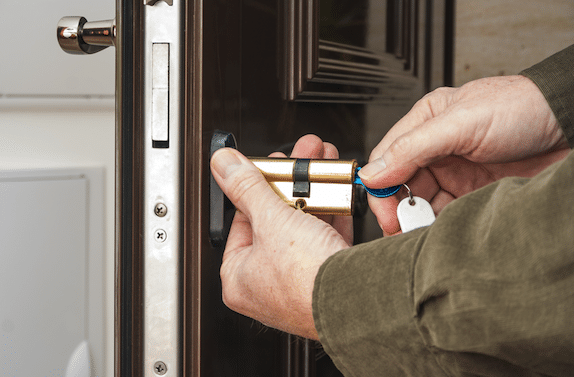An air pump creates a partial suction in a vacuum cleaner, which is then used to pick up debris from hard surfaces and carpeting. While vacuum cleaners are generally considered safe appliances, they can start smoking for some reason. If you want to know why is my Vacuum Cleaner Smoking, it’s essential to determine the cause and take the necessary steps to fix it.
Typical Reasons for a Smoking Vacuum

Filthy or Clogged Filters:
In most cases, clogged or dirty filters are to blame when a vacuum emits smoke. Clogged filters might lead to an overheated and smoking vacuum. Keep your filters clean and maintain them regularly to avoid this.
The engine or electrical components being too hot:
A smoldering vacuum cleaner’s engine or electrical components are usually overly hot. The vacuum can smoke if these parts get too heated. If your vacuum is smoking, switch it off and let it cool before using it.
Foreign Items or debris in the motor or airflow system:
The following common cause of a smoking vacuum is foreign objects or debris in the motor or airflow system. If you see smoke coming from your vacuum, it’s time to look closer.
Malfunctioning electrical or Motor Components:
The vacuum cleaner will overheat and smoke if not supplied with adequate electricity. The vacuum cleaner’s engine might be on its last leg, too. Overuse might cause the engine to start smoking.
Damage to the Power Connector or Cord of the Vacuum:
Damage to the power connector or cable is another potential source of smoke coming from the vacuum.
What to do Right Away if your Vacuum is Smoking

Removing the vacuum’s plug and Turning it off
If your vacuum is smoking, you should remove the plug from the power outlet and turn off the vacuum. If the vacuum is still smoking, you should take it outside and away from any flammable materials.
Detecting and Removing Unwanted Items or Trash
If your vacuum is smoking, taking action immediately is crucial. Dust can cause the vacuum to stop working. You should check the vacuum for any unwanted items. This might be the reason for vacuum smoking.
Letting the Vacuum Cool Down before using it once more:
If your vacuum cleaner begins to smoke, turn it off and give it time to cool down. Overheating can cause plastic components and insulation in a vacuum to catch fire, producing smoke.
Examining the Connector and Power Wire for Damage:
Make sure the power wire to your vacuum cleaner is in good shape. Frayed or melted wires are signs of imminent danger and require quick attention. You must buy a new vacuum if the power cable is thoroughly fried.
Preventative Techniques to Avoid a vacuum Cleaner from Smoking
Cleaning and maintaining the Vacuum’s Filters:
The filters must be regularly cleaned and maintained to keep the vacuum from emitting smoke. Having the filters clogged with debris might lead to vacuum overheating and smoking. Take the filters out of the vacuum and rinse them under running water. Be sure the filters are thoroughly dry before reusing them in the vacuum.
Dust bags, and canisters on a regular basis:
You must replace the dust bag and canister to keep your vacuum from igniting. Over time, the dust generated by the vacuum cleaner will build, and when heated by the motor, it can emit poisonous smoke.
Avoiding using a Vacuum on Unsuitable surfaces or Certain types of Dirt:
Sparks from a vacuum’s motorized suction can start a fire in flammable items like dust and lint. The vacuum may begin to smoke and catch fire due to this. Avoiding this problem requires first being aware of the materials and grime that might reduce a vacuum cleaner’s suction force.
Regular Inspection and Replacement of worn and broken parts:
Check a vacuum cleaner often for wear and damage to prevent smoke. Vacuums run on motors. Maintaining it and preventing technological issues is crucial. When these elements wear out, dust and debris block the vacuum, causing overheating and smoke.
How to Keep the Vacuum while not in use properly:
With enough practice, you can keep your vacuum cleaner from emitting smoke. Keeping the vacuum from sitting idle for extended periods is an important step. Another crucial is maintaining spotless filters with secure filter housings. Use the vacuum frequently to keep it in motion.
Keeping an eye out for Overheating or malfunction in the vacuum:
If your vacuum is overheating or acting erratically, you should immediately act. You can avert an issue by employing a few preventative measures. Examine the filters first. It might be the hose if they’re clean and the vacuum functions correctly. If the hoses are allowed to accumulate enough dust, hair, and other particles, the vacuum may overheat after some time. If everything else fails, call in a professional to inspect the machine.
Conclusion
Smoke coming from your vacuum cleaner is not a good sign. It could indicate an electrical problem, a clogged filter, or a blockage in the vacuum hose or elsewhere in the vacuum. If you see smoke coming from your vacuum, unplug it immediately and look inside to see if you can identify the problem. If you can’t, take it to a vacuum repair shop to have it checked out.


